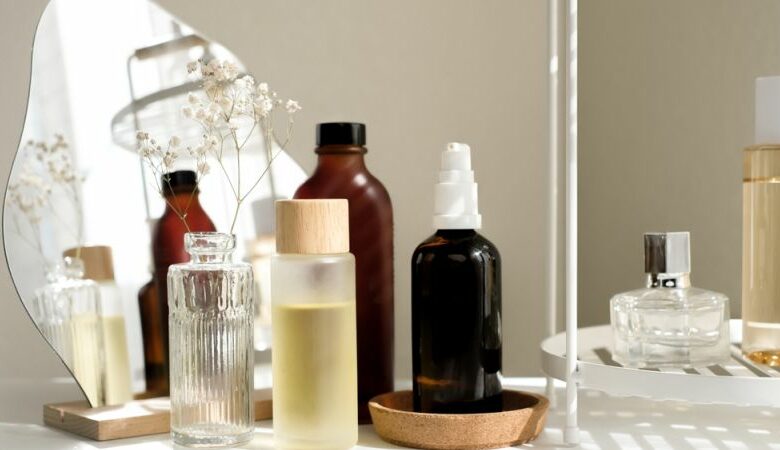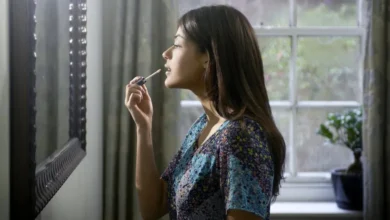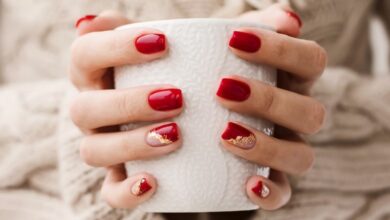Dermatologist reveals skincare mistakes one might make

Glowing skin turns head and leaves a trail of compliments. But it’s only a byproduct of a bigger picture, the unseen hard work and discipline that acts as the pillar for healthy skin. Skincare is also about watching out for red flags that can derail your efforts for glowing skin. It’s not just about following the essentials; it’s also about being mindful of what should be avoided.
In an interview with HT Lifestyle, Dr Sagar Gujjar, MD, Dermatologist (IFAAD), Founder and Head of Skinwood — Luxury Aesthetics Centre, shared some skin ‘sins’ that can be detrimental to your skin.
Morning routine
Skincare goes beyond applying products on the skin for treatment. Skin treatment starts from within first. Dr Gujjar highlighted this right in the beginning, indicating that not exercising is one of the biggest sins for the skin. He described how exercising affects the skin and said, “Regular exercise increases blood circulation, delivering oxygen and nutrients to your skin. It also helps your body detoxify by flushing out toxins, which reflects as a natural, healthy glow on your skin.”
Another cardinal sin that is centred on skin treatment from within is not drinking enough water. Dr Gujjar explained that staying hydrated is crucial for maintaining skin elasticity, preventing dryness, and flushing toxins out of the body. He recommended at least 8–10 glasses of water daily for healthy skin. So start your day by exercising and drinking water.
Morning usually begins with a nice hot water bath, but Dr Gujjar gives a grim reality check as he adds that long, hot showers strip the skin’s natural oils and disrupt its protective barrier, leading to dryness, flakiness, and sensitivity. Instead, he suggested bathing with lukewarm water and moisturizing afterwards.
For those who go swimming in the morning, Dr Gujjar precautioned to avoid swimming during peak UV exposure (9 am – 4 pm) to reduce tanning and UV damage. Heavily chlorinated pools can dry out and irritate the skin. So he advised to always take a quick shower before and after swimming, and always apply a barrier cream or moisturizer to protect the skin.
Daytime protection
Not applying sunscreen when stepping out in the daytime has to be the most toxic behaviour for your skin. Dr Gujjar reiterated that sunscreen is non-negotiable. He said, “Apply a broad-spectrum sunscreen with SPF 30 or higher every 2–3 hours, especially between 9 AM and 4 PM. Choose a sunscreen that suits your skin type, as higher SPF formulations tend to be heavier and may clog pores, leading to breakouts, particularly for oily or acne-prone skin. Proper sun protection prevents premature aging, pigmentation, and other UV-related damage.”
Cleansing and exfoliation
Cleansing is the base before you embark on the meticulously planned skincare sequence. But it all topples down in vain if cleansing is not done carefully. Dr Gujjar listed two don’ts when it comes to cleansing. First is using a harsh face wash. Instead, he recommended going for a face wash with a balanced pH to maintain the healthy skin barrier. Harsh cleansers strip away essential oils, leaving the skin dry and vulnerable to irritation.
Secondly, he discouraged overusing exfoliators or AHA/BHA products. Dr Gujjar explained, “Exfoliation is necessary for maintaining healthy skin, but overdoing it, whether with physical scrubs or chemical exfoliants like AHA/BHA products, can weaken your skin barrier, leading to sensitivity, dryness, and breakouts. Limit exfoliation to once or twice a week and opt for gentle methods. Since AHA and BHA products may not suit all skin types, always consult a dermatologist before incorporating them into your routine to avoid irritation or over-exfoliation.”
Dietary habits
The adage ‘you eat what you are’ is applicable for skin health as well. Nourishing the skin with appropriate dietary habits is important. Dr Gujjar reminded to watch out for bad food choices as a balanced diet is vital for healthy skin. Describing the green and red flags of diet, he mentioned that protein supports skin repair, while excess carbs, sugar, and caffeine lead to dehydration and accelerated ageing. He also recommended including antioxidants in the diet to fight free radicals Hydrate well and include antioxidant-rich foods to fight free radicals which damage skin.
Talking about free radicals that damage collagen and elastin, alcohol and smoking are big culprits. They speed up skin ageing by generating free radicals that eventually lead to dullness, wrinkles, and sagging. He strongly recommended limiting or quitting these bad habits to improve skin health.
Skin handling
How you treat your skin is important. Dr Gujjar outlined these irrefutable DON’Ts that act as a barrier to healthy skin.
Popping acne: Picking at acne can lead to post inflammatory hyperpigmentation and permanent scarring. These scars often require advanced treatments like lasers or chemical peels. Consult a dermatologist to treat acne safely
Sleeping with makeup on: Makeup clogs pores, leading to bacterial infections, breakouts and skin irritation. Always double-cleanse to detox and shed excess skin cells before applying your nighttime skincare
Skipping moisturizer: Moisturizer is essential to maintain a healthy skin barrier. It helps lock in the hydration to and protects it from environmental aggressors, reducing fine line and wrinkles in the long run. Oily or acne-prone skin types need specific non- comedogenic formulas. Consult a dermatologist to choose the right product for your skin
Night routine
End the day well by being mindful of your skin. Dr Gujjar stressed the importance of not skipping the night skincare routine. He said, “Nighttime is when your skin repairs and regenerates. Neglecting this step leaves your skin vulnerable to dryness and damage. Include a nourishing routine with hydrating serums or creams to support skin recovery.”
And lastly, he recommended changing the night pillow covers frequently. Sleeping on unclean covers is harmful to your skin as dirty pillowcases harbour bacteria, dirt, and sweat, which can cause acne breakouts, allergies and skin congestion. Dr Gujjar advised changing pillowcases every 2 – 3 days to prevent the buildup of allergens and minimize the risk of acne and skin irritation.










